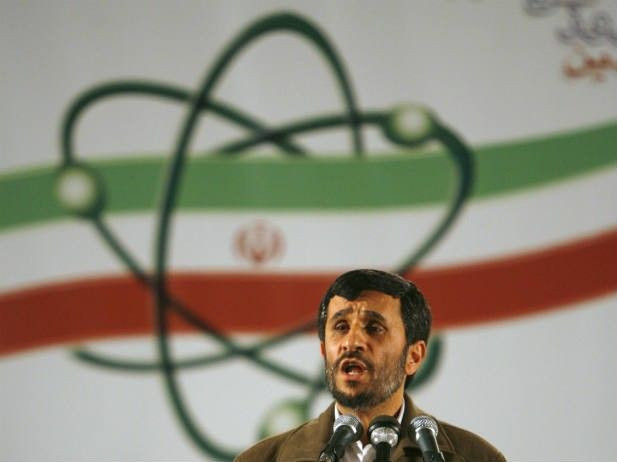Iran Announces Plans For 2 Uranium Plants Days After Negotiations With Western Parties Fail

Iranian President Mahmoud Ahmadinejad said Tuesday that "Iran is currently a nuclear country and nobody can stop its atomic progress," according to the country's Islamic Republic News Agency (IRNA).
President Ahmadinejad addressed a ceremony to observe National Nuclear Technology Day and ordered Iranian nuclear officials to speedily launch five new nuclear reactors.
Iran plans to continue developing high-grade enriched uranium to fuel what it calls research reactors, still being planned for construction.
"We have started the design of a 10-megawatt reactor and the process for determining the location is under way," said Iranian atomic energy chief, Fereydoun Abbasi-Davani, according to ISNA. He added that construction may start this year.
The United States, Russia, China, United Kingdom and France -- the five countries that make up the U.N. Security Council countries -- plus Germany (together called the P5+1) claim that refining uranium to a fissile concentration of 20 percent it will make Iran technically capable of producing a nuclear weapon. Iran claims it uses the uranium to produce medical isotopes.
"President Obama could not be more clear: Iran cannot have and will not have a nuclear weapon," U.S. Secretary of State John Kerry said on Tuesday following talks in Jerusalem with Israeli Prime Minister Benjamin Netanyahu. Israel has warned that it could consider preemptive military options against Iranian nuclear sites.
"We are open to negotiation," Kerry added. "But it is not open-ended, endless negotiation."
Iran already has the ability to turn raw uranium ore into a material commonly referred to as yellowcake -- the first step in the enrichment chain. Yellowcake can be processed into enriched uranium to make fuel for nuclear power plants but also to make material for atomic bombs if refined further.
IRNA said operations had begun at Saghand 1 and 2 -- the country's largest uranium mine and processing facility -- and also at a uranium yellowcake milling plant in the town of Ardakan in the central province of Yazd.
Iran's Foreign Ministry spokesman, Ramin Mehmanparast, also spoke to reporters Tuesday and urged the P5+1 to "recognize Iranˈs legitimate nuclear rights."
Mehmanparast referred to the latest round of negotiations in early April between Iran and the P5+1 in Kazakhstan saying that Iran's Secretary of the Supreme National Security Council, Saeed Jalili, called the talks "direct and serious and the two sides discussed issues in detail during the negotiations." However, P5+1 observers referred to the talks as unproductive.
Hours after Iran's officials announced nuclear development plans, a magnitude 6.1 earthquake struck in southern Iran killing at least 20 and injuring more than 500. IRNA quickly published news that the epicenter near the city of Kaki is about 60 miles from its Bushehr nuclear plant and it was safe and unaffected by the quake.
© Copyright IBTimes 2024. All rights reserved.






















